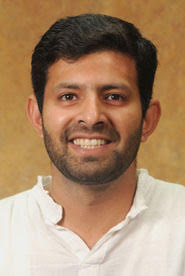Speakers Bureau List (2024-25)
- Christopher Reed Coggins, Geography and Asian Studies, Bard College at Simon’s Rock
- Jack Dash Harris, Sociology, Hobart And William Smith Colleges
- Gao Hong, Music, Carleton College
- Jaya Jha, Economics, Davidson College
- Karil Kucera, Art and Asian Studies, St. Olaf College
- Vivian Wenli Lin, Media Arts and Culture, Occidental College
- Lauren Meeker, Anthropology, SUNY New Paltz
- Wayne Patterson, History, St. Norbert College
- Jeff Snyder-Reinke, History, The College of Idaho
- Nikky-Guninder Kaur Singh, Religious Studies, Colby College
- Mizuki Takahashi, Biology, Bucknell University
- Patricia Welch, Japanese and Comparative Literature, Hofstra University
- Syed Rizwan Zamir, Religious Studies, Davidson College
Speaker contact and bios:
Christopher Reed Coggins, Ph.D.
Geography and Asian Studies
Bard College at Simon’s Rock
ccoggins@simons-rock.edu
https://simons-rock.edu/academics/faculty-bios/social-studies-faculty/chris-coggins.php
Speech Titles
- “God Mountains and Fengshui Forests: Spiritual Landscapes, Sacred Watersheds, and Nature Conservation in China”
- “The Ecological State (Shēngtài Lìguó 生态立国) and Ecological Civilization (Shēngtài Wénmíng 生态文明): Who Will Rise to Meet China’s Global Environmental Challenge?”
- “Rethinking the Environment, the Indigenous, and the Nation in the Chinese Anthropocene”
- “China’s Village Fengshui Forests: Geographic Distribution, Sociocultural Features, Ecological Significance, and Conservation Prospects”
Chris is a Professor at Bard College at Simon’s Rock and director of the Geography and Asian Studies concentrations. His research focuses on rural China, political ecology, biodiversity, sacred landscapes, protected area management, and the social construction of nature, property, and personhood under colonialism and globalization. He is the co-editor (with Emily Yeh) of Mapping Shangrila: Contested Landscapes of the Sino-Tibetan Borderlands (University of Washington, 2014), and the author of The Tiger and the Pangolin: Nature, Culture, and Conservation in China (University of Hawaii Press, 2003) (runner-up for the 2003 Julian Steward Award for best book in environmental/ecological anthropology and nominated for the Kiriyama Prize in non-fiction). He is a co-author of The Primates of China: Biogeography and Conservation Status – Past, Present, and Future (China Forestry Publishing House, 2002). Chris has published refereed articles in many geography, environment, and Asia-related books and periodicals. Since 2011, he has led six international teams engaged in a multi-year, mixed methods, field and archival research project on the fengshui forests of southern and central China. With Professor Bixia Chen (University of the Ryukyus) and Professor Jesse Minor (University of Maine Farmington) he is co-authoring the first book in English on fengshui forests in Mainland China.
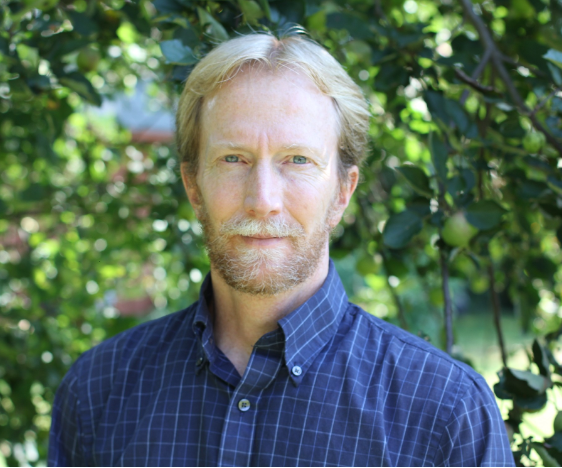
Jaya Jha, Ph.D.
Economics and South Asian Studies
Davidson College
jajha@davidson.edu
Speech Titles
- “Women’s Work in India”
- “Social Capital in Rural India”
- “Poverty in South Asia”
Jaya Jha is the Boone Assistant Professor of Economics and a Core Faculty member in South Asian Studies at Davidson College in North Carolina. Her research areas include economic growth and development, macroeconomic aspects of international trade, and applied time series analysis. She is examining publication trends in development economics, women’s labour force participation in India, and child malnutrition in Rwanda. She has previously explored the complementarity and substitutability between public and private investment in Pakistan, and the intertemporal dynamics of US agricultural export demand. She holds a PhD in Applied Economics (University of Minnesota), an MA in Economics (University of Pune), and BA (Honours) in Economics (University of Delhi). She teaches macroeconomics, development, growth, and forecasting, and mentors student research projects.

Jack Dash Harris
Sociology
Hobart And William Smith Colleges
HARRIS@hws.edu
Speech Titles
- “Rice and Noodles: Extramarital Relationships, Masculinity, and Gender Relations in Vietnam”
- “Cooking Up Culinary Nationalism in Vietnam: Is There a Vietnamese National Cuisine?”
- “Yesterday, Today, and Tomorrow: What is the Vietnamese Future?”
- “After Communism and Capitalism: What Is Left of Traditional Vietnam?”
- “Amoral Familism: The Challenges for Civil Society in Vietnam”
- ‘Teaching About Vietnam: In the Classroom and Abroad”
Jack Harris is a tenured Professor of Sociology at Hobart and William Smith Colleges, Geneva, NY. He holds a Doctoral and Masters degree in Sociology. Harris served on the board of the ASIANetwork, as its co-director of the ASIANetwork Service Learning and Environment in Asia Program (ANSLEAP), directed the ASIANetwork-Mellon Foundation Faculty Enhancement Program (ANFEP) to Vietnam, and currently serves as an ASIANetwork development officer. Harris concentrates on understanding Vietnam’s society and culture, including publishing on Vietnamese masculinity, Vietnamese food, and social and cultural change in Vietnam. His current work seeks to understand the Vietnamese concept of the future, and how the Vietnamese are imagining and managing the future as a unified nation and at peace. Harris teaches a course on the Sociology of Vietnam. He has directed the Colleges’ Vietnam off-campus study program, leading the Vietnam off-campus program in 1997 and 2012, and leading four faculty study tours and three alumni study tours to Vietnam, most recently in 2017. He supported faculty development efforts to build and sustain the program by co-directing a federal Title VI grant in infusion of Vietnamese materials into the curriculum. He was the recipient of the ASIANetwork-Freeman Student-Faculty Fellows Award in 2003, and the recipient of the 2005-2006 Liberal Arts College Faculty Exchange Program Award from the American Council of Learned Societies and Luce Foundation where he served as an Exchange Scholar in Vietnam. He has developed a critical food studies summer program in Vietnam in collaboration with GustoLab of Rome, Italy. In addition to his HWS study abroad experience, Harris served as the Core Director for Semester at Sea, as a Visiting Lecturer at Japan Center for Michigan Universities, Hikone, Japan, and has been a regular presenter and respondent at the International Conference on Vietnamese Studies, Hanoi, Vietnam. He was twice President of the New York State Sociological Association. As an applied sociologist, Jack consults to local governments on business process reengineering and organizational change management. He has assisted in organizational analysis and design, leadership and management training and staff development, employee motivation, group dynamics and team building, conflict management and resolution, and the analysis of workplace culture.

Gao Hong
Music
Carleton College
ghong@carleton.edu
https://apps.carleton.edu/profiles/ghong/
Speech Titles
- “Teaching Chinese Music in America”
- “Chinese Traditional Instruments in Multicultural Performances”
- “Concerti for Chinese Traditional Instruments and Western Symphony Orchestra”
- “Chinese Traditional Music and Minority Music” “
- Storytelling in Chinese Music”
- “Modern Uses for Traditional Chinese Instruments”
- “Contemporary Chinese Composers”
- “Understanding China Through Music”
Gao Hong, Chinese pipa player and composer, began her career as a professional musician at age 12. She graduated from the Central Conservatory of Music in Beijing where she studied with pipa master Lin Shicheng. She has received numerous awards and honors, including First Prize in the Hebei Professional Young Music Performers Competition, a Beijing Art Cup, an Asian Pacific Award, and fellowships from the Minnesota State Arts Board, Meet the Composer and Sorel Organization in New York. In 2005 Gao Hong became the first traditional musician to be awarded the prestigious Bush Artist Fellowship, and in 2012 she became the only musician in any genre to win four McKnight Artist Fellowships for Performing Musicians. She has performed throughout Europe, Australia, Argentina, Japan, Hong Kong, China, and the United States, and has participated in the Lincoln Center Festival and San Francisco Jazz Festival, and in international festivals in Paris, Caen, Milan, and Perth. She has performed countless U.S. and world premieres of pipa concerti with organizations such as the Saint Paul Chamber Orchestra, Heidelberg Philharmonic, Buenos Aires Philharmonic, Louisville Orchestra, Hawaii Symphony, Pasadena Symphony, and the Women’s Philharmonic (San Francisco), among others. As a chamber player, she was featured as both pipa player and composer at ChamberFest Cleveland, Yellow Barn Music Festival, Carolina Chamber Music Festival, Harbin Summer Music Festival, Pittsburgh Early Music Festival and others. In 2017 she became the first Chinese musician to play the National Anthem at a Minnesota Timberwolves NBA game at Target Center in Minneapolis. As a composer, Gao has received commissions from the American Composers Forum, Walker Art Center, the Jerome Foundation, Zeitgeist, Ragamala Dance Theater, Minneapolis Guitar Quartet, Theater Mu, IFTPA, and Twin Cities Public Television. Her composition for solo pipa, “Flying Dragon”, won the 2012 Global Music Award – Award of Excellence Solo Instrumental (Gold Medal). In 2016, Gao Hong completed the first pipa method book ever written in English and had it published by Hal Leonard, the world’s largest music publishing company. She teaches Chinese musical instruments and directs the Carleton Chinese Music Ensemble and the Global Music Chamber Ensemble at Carleton College in Minnesota. She is also Guest Professor at the Central Conservatory of Music in Beijing, China Conservatory of Music, Tianjin Conservatory of Music, and Hebei Provincial School for the Arts. China’s foremost music publication, “People’s Music,” wrote of Gao Hong that “like the famous Luoyang peony, she has gradually emerged as the best of all beautiful flowers…her performance has extremely strong artistic appeal and belongs under the category of ‘fine wine’…the more you listen, the more beautiful it gets…” Gao Hong’s personal website can be found at: www.chinesepipa.com.
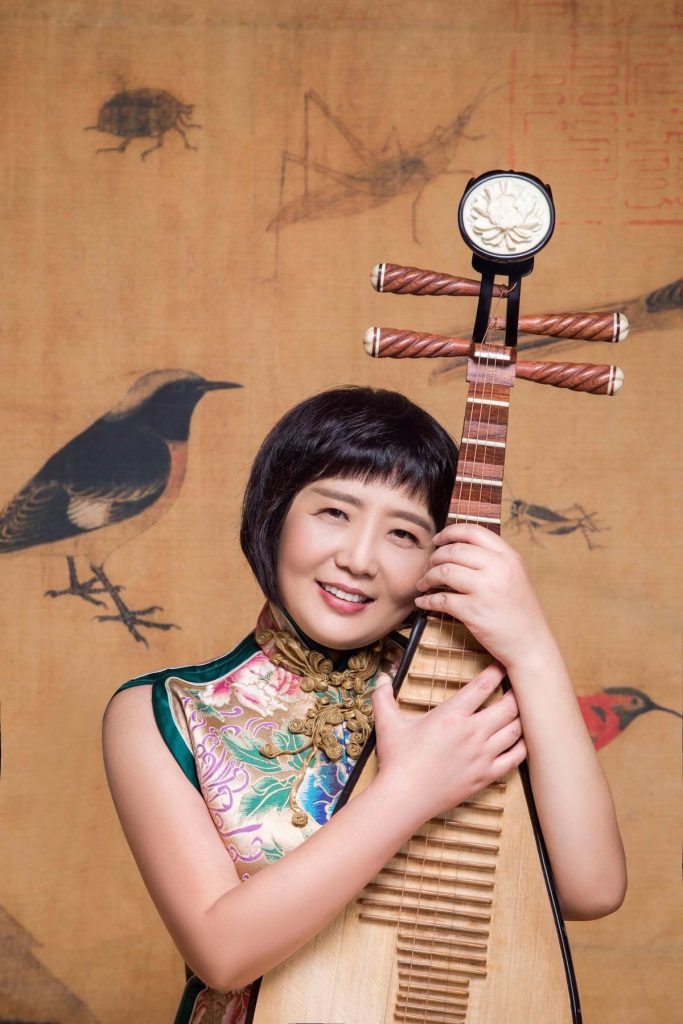
Vivian Wenli Lin, Ph.D.
Media Arts and Culture
Occidental College
vlin@oxy.edu
Speech Titles
- “Women Making Moves: Participatory Narratives of Migration”
- “Migration, Labor and Gender: Creating Participatory Media with Communities of Migrant Women Workers”
- “Media Activism Through Participatory Video”
Vivian Wenli Lin is a media artist and educator with a background in documentary film, video art, and interactive installation. She founded Voices of Women Media, an organization that utilizes visual participatory methods to facilitate communities of migrant women and allies in media literacy and authoring their own narratives. Lin received her Ph.D. in Media Art at the City University of Hong Kong’s School of Creative Media. From 2017-2021 she was based in Tokyo, Japan, where she taught at the Tokyo University of Foreign Studies and served as an Associate Professor at Tokyo Christian Woman’s University. From 2020-2023, she was appointed as the Visiting Assistant Professor in Media for Social Change at Occidental College’s Media Arts and Culture department where she developed the course Media Activism Through Participatory Video based on her practice. From 2023 onwards, she serves as an Assistant Professor at Occidental College.
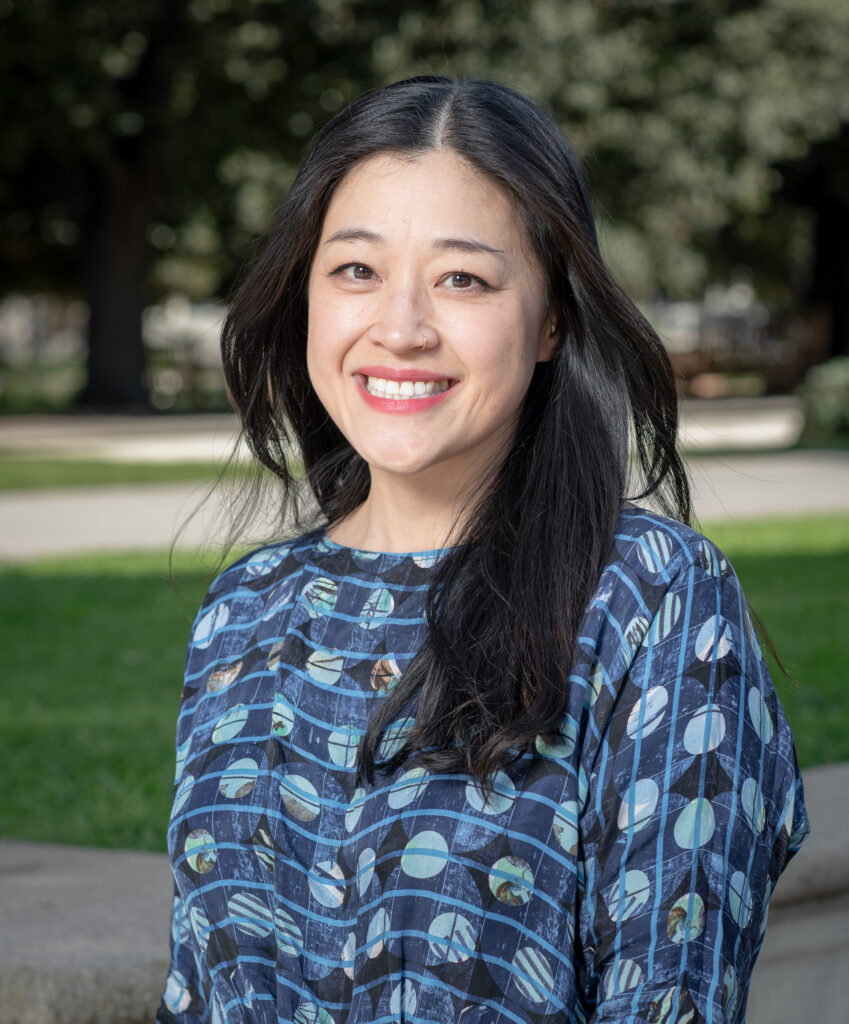
Lauren Meeker, Ph.D.
Anthrolopology and Asian Studies
State University of New York at New Paltz
meekerl@newpaltz.edu
Speech Titles
- “Ethical Engagement and Collaborative Ethnographic Filmmaking”
- “Changing Gender Norms in Chèo Popular Theater in Northern Vietnam”
- “Amateur Lineage Historiography in a Northern Vietnamese Village”
- “Moral Personhood, Gender, and Popular Buddhist Practice in Rural Northern Vietnam”
Lauren Meeker received her Ph.D. in anthropology, with distinction, from Columbia University in 2007. She is currently Associate professor of Anthropology at the State University of New York at New Paltz and also teaches in the Asian Studies Program. Her research foci include visual anthropology, the cultural politics of folk performance, the ritual construction of moral personhood in Vietnam, online ancestor worship, and cross-cultural musical pedagogies.
Her current research projects include an NSF and NEH funded collaborative project with Dr. Phan Phuong Anh (Department of Anthropology, Vietnam National University) that examines how social belonging and moral personhood are shaped through ritual practice in rural northern Vietnam, and a study on the use of online media in ancestor worship among families with members living and working abroad.
Her films on Vietnamese culture include Drums on the Red River (DER, 2010), Singing Sentiment (Berkeley Media, LLC., 2014), and Mother Witness for Me (Mẹ Chứng cho Con) (co-directed with Dr. Phan Phuong Anh, 2021). She and Alyson Hummer have co-directed several films about cross-cultural musical collaborations including Growing Rhythm (2019), which documents the SUNY New Paltz Burmese hsaing ensemble’s work with acclaimed Burmese percussionist Kyaw Kyaw Naing. With funding from the Asian Cultural Council, she and Alyson also directed a short film Ko Gyi Kyaw (2021) as part of a larger project on Burmese spirit mediumship (nat pwe). And, they have recently completed Intermittent Attunement (2023), a collaborative visual ethnography that documents classically trained pianist Alex Peh’s lessons in four different oral piano traditions: Burmese sandaya, Greek rebetiko, Persian-tuned classical piano, and jazz.

Karil Kucera, Ph.D. 古嘉慧
Luce Professor of Asian Visual Culture Art and Asian Studies
St. Olaf College
kucera@stolaf.edu
https://www.stolaf.edu/profile/kucera/
Speech Titles
- “Varying Visions of Heaven and Hell: Lessons Learned at the Buddhist Site of Baodingshan”
- “Preserving Pain, Promoting Peace: Modern Memorial Sites in Asia”
- “We Get to Touch Stuff?! Using Museum Collections with Students”
- “Collecting Asia: What Your Collection Says about Your Institution”
Dr. Karil Kucera’s research centers on sacred sites, with her most recently completed work focused on the cliff sculptures at the Buddhist cave site of Baodingshan in Sichuan province, Ritual and Representation in Chinese Buddhism: Visualizing Enlightenment at Baodingshan from the 12th to the 21st Century. Her current research project looks at sacred sites across Asia through a variety of theoretical lenses. She has also developed an interest in material culture and teaching through experiential learning. Using materials from St Olaf College’s Flaten Art Museum, Dr. Kucera has worked with students to put on exhibitions related to Japanese and Chinese print culture, Chinese ceramics, the Chinese scholar’s studio and the Japanese tea ceremony. Dr. Kucera has been actively involved in working with digital imaging issues and is a co-creator of a multimedia /multi-cultural Asian Studies multi-institutional database, the IDEAS project. IDEAS – an Image Database to Enhance Asian Studies – is available on the worldwide web at www.ideasproject.org. A major portion of the database is dedicated to Asian art and material culture found within ASIANetwork institutions – click here for a link to this collection. Dr. Kucera has lived and traveled extensively throughout Asia, and currently serves as chair of the Asian Studies Department.

Mizuki Takahashi Ph.D.
Biology and Animal Behavior Program
Bucknell University
mizuki.takahashi@bucknell.edu
https://sites.google.com/bucknell.edu/takahashi-lab/home
Speech Titles
- “Little Known Giant: The Life History of the World’s Largest Amphibians”
- “Liberal Arts Ecologist: Happiness, Ethics, and Giant Salamander Research”
- “Environmental and Conservation Issues in Japan”
- “Is Mass Extinction Going to Happen Again?”
Mizuki Takahashi is an ecologist and conservation biologist from Japan. He is an Associate Professor of biology and animal behavior at Bucknell University, Pennsylvania. He was born in Hokkaido and grew up in Tokyo, Japan. He majored in forestry as an undergrad at Tsukuba University and a master’s student at Tokyo University. He came to the U.S. in his late 20s. Since then, he has studied ecology, evolution, and conservation of amphibians (along with American culture and English!) and holds a Ph.D. from the University of Memphis. His current research focuses on the interspecific competition of local amphibians such as spotted salamanders (Ambystoma maculatum) and wood frogs (Lithobates sylvaticus) and the conservation ecology of the giant salamanders: the hellbender and the Japanese giant salamander. His teaching interests also include mass extinctions, environmental conservation issues in Japan, and the science of meditation. He is a co-editor of the international peer-reviewed journal Herpetological Conservation & Biology and co-charing the journal’s DEI committee. In 2022, he published a book, “Is Mass Extinction Going to Happen Again?”, targeting teenagers and the lay audience in Japan. He loves the outdoors: hiking, camping, fishing, mushrooming, and trail running.

Wayne Patterson
History
St. Norbert College
waynekpatt@gmail.com
Speech Titles
- “China’s informal imperialism toward Korea in the 1880s”
- “The early immigration of Koreans to the United States, 1900-1910”
- “Picture brides and the formation of the Korean American community, 1910-1924”
- “First- and second-generation Koreans and their interactions with Caucasians and Japanese, 1903-1945”
Wayne Patterson received his undergraduate degree in History from Swarthmore College and his graduate degrees (two MAs and a PhD) in History and International Relations from the University of Pennsylvania. He has taught modern East Asian history at St. Norbert College for more than four decades. He has also been a visiting professor at a number of universities. In the United States, they include Harvard University, the University of Pennsylvania, the University of California at Berkeley, Vanderbilt University, the University of South Carolina, the University of Chicago, the University of Hawaii at Manoa, and the University of Wisconsin-Madison. He has also been a visiting professor abroad, including two as a Fulbrighter. In Korea, that includes Korea University, Yonsei University, Ewha University, Sogang University, and Chonnam National University. He has also been a visiting professor at the University of the Philippines-Diliman and, most recently, at Hang Seng University in Hong Kong. His books include: The Korean Frontier in America: Immigration to Hawaii, 1896-1910; The Ilse: First-Generation Korean Immigrants in Hawaii, 1903-1973; In the Service of His Korean Majesty: William Nelson Lovatt, the Pusan Customs, and Sino-Korean Relations, 1876-1888; William Nelson Lovatt in Late Qing China: War, Maritime Customs, and Treaty Ports, 1860-1904; and At the Deathbed of Empire: William Franklin Sands in Late Choson Korea, 1896-1904 (forthcoming).

Jeff Snyder-Reinke
History
The College of Idaho
Speech Titles
- “Bones, Babies, and the Politics of Burial in Late Imperial China”
- “Afterlives of the Dead: Uncovering Graves and Mishandling Corpses in Qing Law and Society.”
- “Religion and State in Modern China”
- “Style and Efficacy in Qing Rainmaking”
Jeff specializes in the social and cultural history of late imperial China. He earned his Ph.D. from the University of Michigan, where he specialized in the study of modern Chinese history and East Asian religions. His dissertation research was conducted at the Institute for Qing History in Beijing while on a Fulbright Fellowship. Out of this research came his first book, Dry Spells: State Rainmaking and Local Governance in Late Imperial China, which was published by Harvard in 2009. He is currently working on a book manuscript on infant burial in late imperial China. Professor Snyder-Reinke teaches courses on variety of topics in Asian history, including Modern China, Modern Japan, Modern Tibet, Southeast Asia, and Chinese Religions. In addition, he periodically leads student tours to China and Southeast Asia. When he is not teaching or doing research, he spends his time trail running, skiing, climbing mountains, and taking care of his twin boys, Rhodes and Ike.

Nikky-Guninder Kaur Singh
Chair of the Department & Crawford Family Professor
Religious Studies
Colby College
nksingh@colby.edu
http://www.colby.edu/directory_cs/nksingh/
Speech Titles
- “Aesthetics: The Global Connection”
- “Sacred Text, Human Quest: Asian Scriptures in the American classroom”
- “Moving Beyond us vs. them: Hindu, Muslim, Sikh Poets from the Punjab”
- “Mistaken Identity: Sikhs and their literature, music, art, film”
- “Feminist Approach to the Study of Indian religions”
Dr. Nikky-Guninder Kaur Singh is the Crawford Professor and chair of the department of Religious Studies at Colby College. Her interests focus on Asian Religions, feminist issues, and sacred art and poetry. Dr. Singh has published extensively in the field of Sikh studies. Her books include Of Sacred and Secular Desire: An Anthology of Lyrical Writings from the Punjab (IB Tauris 2012), Sikhism: An Introduction (IB Tauris 2011), Cosmic Symphony (Sahitya Akademy, 2008), Birth of the Khalsa (SUNY 2005), Feminine Principle in the Sikh Vision of the Transcendent (Cambridge University Press, 1993), Sikhism (Facts on File, translated into Japanese, 1993), and The Name of My Beloved (HarperCollins1995; Penguin 2001). She has authored almost 100 articles and chapters, and given more than 250 lectures nationally and internationally. Her views have also been aired on television and radio in America, Canada, England, Ireland, Australia, India, and Bangladesh. She has served on the editorial board of several journals including the History of Religions, the Journal of the American Academy of Religion, and Sikh Formations. She came to America to attend a girls’ prep school in Virginia, got her BA from Wellesley College, MA from University of Pennsylvania, and PhD from Temple University.
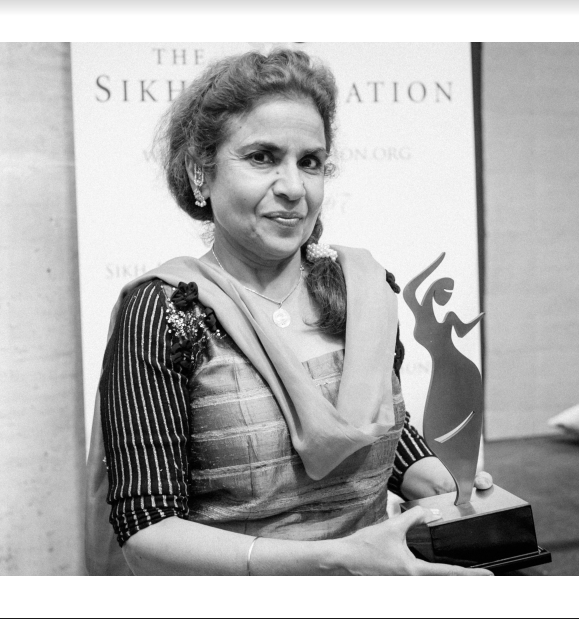
Patricia Welch
Japanese and Comparative Literature
Hofstra University
Patricia.welch@hofstra.edu
Speech Titles
- “Trumping 1Q84/Nineteen Eighty-Four? Reading Murakami and Orwell in a Dystopian Era” “Questing for Color: Tsukuru Tazaki’s Pilgrimage in the Context of Murakami Haruki’s Work”
- “Responsible Dreaming: Dreamscapes and Trauma Response in Murakami Haruki’s Kafka on the Shore.”
- “Rakugo: Japanese Art of the Spoken Word”
- “Acts Like a Girl: Gender Performativity in Rakugo”
- “Edogawa Ranpo’s ‘The Caterpillar’ and the Modern Body Politic”
- “Deathly Decisions: Elective Ill-health in The Tale of Genji”
- “Reassessing Lafcadio Hearn: Meiji Japan’s Exote Observer”
Patricia Welch teaches Japanese language and literature and comparative literature at Hofstra University and is director of the Asian Studies Program. Recent literature classes include Tokyo in literature and film; literature of mystery and suspense; The Tale of Genji; as well as Japanese language courses on all levels. Recent publications include “Responsible Dreaming: Dreamscapes and Trauma Response in Murakami Haruki’s Kafka on the Shore,” “Excess, Alienation and Ambivalence: Edogawa Rampo’s Tales of Mystery and Imagination,” and “A Consideration of Kokoro: Hints and Echoes of Japanese Inner Life” (which was also translated into Vietnamese). With Mari Fujimoto, she is the author of NipponGO! An Introduction to Elementary Modern Japanese Language. In addition, she is on the executive board of the New York Conference on Asian Studies (NYCAS). She received her A.M. and Ph.D. from the University of Michigan. She is the recipient of numerous scholarships, including a Fulbright Research Fellowship and a Japan Foundation Short-Term Fellowship. She was also selected as a participant in an NEH summer institute at FIU entitled “Tokyo: High City and Low City;” and as a participant in an ASIANetwork Faculty Enhancement Program on Thailand.

Syed Rizwan Zamir, Ph.D.
Associate Professor of Religious Studies
Davidson College
rizamir@davidson.edu
https://www.davidson.edu/academics/religious-studies/faculty-and-staff/syed-rizwan-zamir
Speech Titles
- “Sufi Mediation of the Sunni-Shiite Divide”
- “Ecology in Contemporary Muslim Thought”
- “Wheresoever You Turn…: The Orienting Tale of all That’s Islamic”
- “Make me die a Muslim: Islamic Perspectives on Death, Dying and the Afterlife”
- “Whence comes then this song of the Friend: Encountering Rumi and His Interpreters”
In 2010 Syed Rizwan Zamir joined Davidson College to teach introductory and advanced courses in the area of Islamic studies. As years have passed, his interests have expanded, even bifurcated: deliberations upon humanities, humanity, and being human (i.e., what does it mean to be human?) has led him to reimagine the study of Islam within a Western liberal arts institutional setting, and engage the Humanities and South Asian Studies programs. So far at Davidson College he has taught 11 Islamic studies courses that range from overviews of Islam to specialized topics such as mystical life and thought, comparative study of Sunni and Shiite traditions, eschatology, literary texts, “Islam in America” and encounters of Islamic civilization with Western modernity. He has also taught 4 Religious studies courses that include history, theory and methods in the western academic study of religion, writings of CS Lewis, and comparative study of art across religious traditions. He was part of the Humanities program at Davidson for the year 2017-2018, and lead two independent studies on Punjab and Pakistan. Author of journal articles, book chapters, encyclopedia entries and book reviews, Dr. Zamir is currently “brewing” multiple book-projects. These include an overview of Islamic Ethical Life and Practice; a thorough revision of his PhD dissertation on a seminal and prolific religious figure from Shiite South Asia (Sayyed ‘Ali Naqi al-Naqvi, d. 1988); a volume on the convergences and divergences among Sunni, Sufi and Shiite traditions; and two edited volumes 1) reflecting on the battle of Karbala and life and martyrdom of Imam Husayn; and 2) Sufism’s role in mediating Sunni and Shiite Divide. He was co-chair of the Islam Section of the Southeast Region of the American Academy of Religion (SECSOR), served on the board of the Southeast Regional Middle East and Islamic Studies Seminar (SERMEISS) and is currently Vice President-Elect of SECSOR, on the Board of the Society for the Study of Muslim Ethics (SSME), and on the international advisory board of journals Islamic Studies and Bayan al-Hikma.
